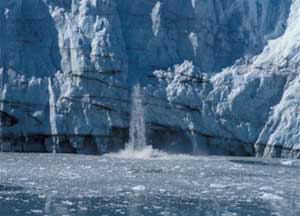Global warming will reduce glaciers and snow worldwide, leading to water shortages and other issues affecting millions, warn American scientists.
 |
|
The decline of glaciers will cause water shortages and other problems affecting millions of people around the world. |
Greenhouse gas emissions from human activities, combined with climate change, are significantly impacting areas dependent on glaciers and snow. This will result in increased water prices and challenges in monitoring this vital resource, researchers from the Scripps Institution of Oceanography report.
According to Tim Barnett, the lead author of the report published in the journal Nature, water shortages will occur in reservoir areas that cannot store annual rainfall or snow, such as in the state of California, USA.
In Canada, earlier water shortages in spring threaten agricultural production. In Europe, warming in the Rhine River basin could reduce water availability for industrial applications, agriculture, and household use. River transport, flood control, hydro energy generation, and income from skiing activities are all at risk, Barnett added.
Researchers warn that regions relying on glacial water sources could face serious impacts within the next few decades. These areas include India, China, and other parts of Asia.
The report also states that glaciers in Peru have decreased by 25% over the past three decades, with some glaciers potentially disappearing completely in the coming decades or even sooner.
TUONG VY (According to Xinhua)


















































